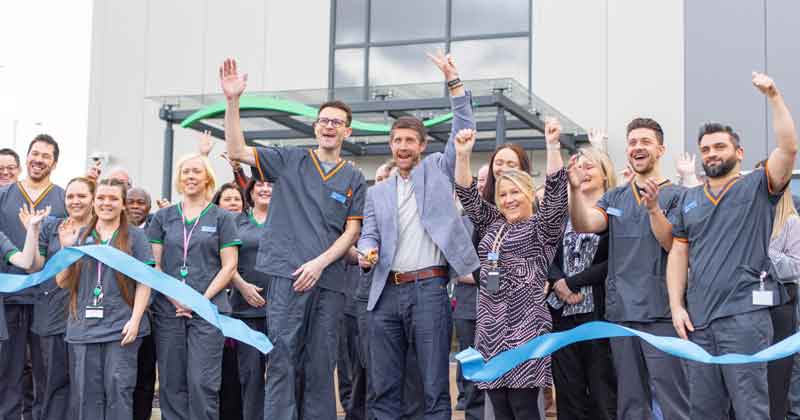19 Apr 2024
UK and Ireland chief executive Duncan Phillips outlines group’s fears about the process and urges sector to unite to raise public recognition of importance of its work.


Animal welfare and public confidence could both be jeopardised if a business regulator continues its examination of companion animal services, a major care provider has warned.
The message from IVC Evidensia bosses emerged as the sector began its fightback against criticisms levelled at it by the Competition and Markets Authority (CMA).
The body is considering whether to proceed with a full market investigation following the publication of its initial report last month.
But IVC’s UK and Ireland chief executive, Duncan Phillips, has now set out his organisation’s fears about the process and urged the sector to unite to raise public recognition of the importance of its work.
Mr Phillips said: “We are concerned about the negative effects on the profession of a prolonged market investigation process.
“It risks further undermining consumer confidence in the veterinary profession, exacerbating existing challenges around vet morale and mental health, and potentially impacting both animal and human health.”
The company’s own consultation response also warned that its practice teams had reported an increase in client abuse “at each stage” since the CMA process began last September.
It also argued that some clinicians could feel “constrained” by suggestions they were not offering impartial advice with the potential for detrimental effects on animals as a result.
Mr Phillips added: “What the conversation around the CMA process misses is that veterinary and support teams are in this business out of love for animals, and a desire to help them have full and healthy lives.
“We need to work together across the profession to improve consumer understanding of the true value of veterinary care.”
Mr Phillips’ comments came at the closure of a consultation process initiated after the CMA announced its provisional decision to proceed with a market investigation reference on 12 March.
Officials from the authority have insisted all consultation responses will be considered – particularly those from parties that would be affected by the process if it does proceed.
But IVC’s consultation submission argued there is already significant common ground within the sector on issues around “transparency and incentives”, as well as regulatory reform that the CMA should take account of in its work.
It confirmed the firm is among a group of companies that has submitted its own proposed remedies and urged the authority to recommend government action to address key industry challenges around recruitment and training capacity.
But the document was also highly critical of the basis on which the CMA reached its provisional view, suggesting it did not reflect the “significant body of evidence submitted by IVC (and we assume its competitors)”.
It also claimed the authority’s stated concerns were “not underpinned by any solid reliable evidence” and the reported testimonies of pet owners could not be considered representative of the wider population.
It further pointed out that the regulator had not suggested vets were providing treatments that were either inappropriate or not clinically justified.
Although there is no set timeframe, officials from the authority say a final decision on the issue will be made by its board “as swiftly as possible”.
It is required to complete a market investigation, including a final report, within 18 months of its launch, unless special circumstances are identified. In that case the process can be extended by a further six months.
But Mr Phillips said: “We urge the CMA to report well ahead of the statutory deadline, building on the broad consensus across the profession, to allow it to reach an earlier conclusion.”